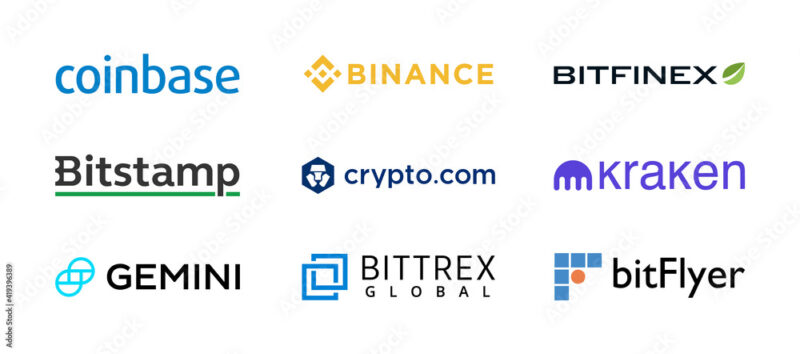Introduction
Cryptocurrency has captured the attention of investors and financial experts alike, as its rise in popularity and value has created a new world of investment opportunities. But, investing in cryptocurrency is not without risks, and it's important to have a solid understanding of the market, benefits, and best practices before making any investment decisions. This guide aims to provide a comprehensive overview of the world of cryptocurrency investing, including its benefits, risks, best practices, and regulatory landscape. Whether you're a seasoned investor or just starting out, this ultimate guide to investing in cryptocurrency is designed to help you navigate this exciting and rapidly evolving market with confidence.
What is cryptocurrency?

Cryptocurrency is a digital or virtual asset that uses cryptography for security and operates independently of a central bank. The first cryptocurrency, Bitcoin, was created in 2009 by an unknown person or group of people using the pseudonym Satoshi Nakamoto. Since then, the use and acceptance of cryptocurrency have grown rapidly, with thousands of new cryptocurrencies being created.
Blockchain Technology
Cryptocurrency relies on blockchain technology, a decentralized ledger system that records transactions and ensures their validity and security. Blockchain technology is a decentralized and secure digital ledger that records transactions in a transparent and permanent manner. It operates on a peer-to-peer network, allowing for a decentralized and decentralized approach to data storage and management. The technology is immutable, meaning that once data is entered into the blockchain, it cannot be altered, providing enhanced security and transparency in transactions and record-keeping. The widespread use of blockchain technology has the potential to revolutionize various industries, from finance and banking to supply chain management and healthcare.
Types of Cryptocurrency

Bitcoin (BTC)
Bitcoin is a decentralized digital currency that operates on a peer-to-peer network and uses cryptography to secure transactions. It was created in 2009 by an unknown person or group using the pseudonym Satoshi Nakamoto and has since become the largest cryptocurrency by market capitalization, with a current value of over $1 trillion USD.
Ethereum (ETH)
Ethereum is a decentralized, open-source blockchain platform that supports smart contracts and decentralized applications (dApps). It was launched in 2015 as an alternative to Bitcoin and has since become the second-largest cryptocurrency by market capitalization. Ethereum enables developers to build and deploy decentralized applications on its platform, making it a key player in the decentralized finance (DeFi) movement.
Ripple (XRP)
Ripple (XRP) is a digital currency that aims to facilitate global payments and improve cross-border transactions. It operates on the RippleNet platform, which provides fast and secure transactions while minimizing costs compared to traditional financial institutions. Ripple has partnerships with several financial institutions, including American Express and Santander, and is considered one of the top cryptocurrencies by market capitalization.
Litecoin (LTC)
Litecoin (LTC) is a decentralized, peer-to-peer cryptocurrency that was created in 2011 as a lighter alternative to Bitcoin. It uses a faster block generation time and a different hashing algorithm, which makes it suitable for smaller transactions and faster confirmation times compared to Bitcoin. Litecoin is considered one of the older cryptocurrencies and has established itself as a top player in the market, with a current market capitalization of over $10 billion USD.
Binance Coin (BNB) is the native cryptocurrency of the Binance exchange platform. It was created in 2017 to serve as a utility token for Binance users, providing discounts on trading fees and being used as a medium of exchange on the Binance Chain. Binance Coin has seen significant growth in value and is now considered one of the top cryptocurrencies by market capitalization, with a current value of over $50 USD per BNB.
Cardano (ADA)
Cardano (ADA) is a decentralized, open-source blockchain platform that aims to improve upon the limitations of existing blockchain technologies. It uses a proof-of-stake consensus mechanism and has a focus on security, scalability, and sustainability, making it a popular choice for developers and investors alike. Cardano is considered one of the top cryptocurrencies by market capitalization, with a current value of over $1 USD per ADA.
Dogecoin (DOGE)
Dogecoin (DOGE) is a decentralized, peer-to-peer cryptocurrency that was created in 2013 as a fun and lighthearted alternative to other cryptocurrencies. It has become popular due to its strong community, with many people using Dogecoin to tip content creators online and to raise money for charitable causes. Despite its original creation as a joke, Dogecoin has become a legitimate cryptocurrency with a current market capitalization of over $6 billion USD.
By understanding the different types of cryptocurrency, you can make informed decisions about which ones may be suitable for your investment portfolio.
Benefits of Investing in Cryptocurrency
- Decentralization and Security: Cryptocurrency operates independently of a central bank, allowing for a more secure and transparent system and its transactions are secured by cryptography and recorded on a decentralized ledger, making it difficult for cybercriminals to steal or manipulate them.
- Lower Transaction Fees: Unlike traditional financial transactions that often charge high fees, cryptocurrency transactions usually have lower fees or none at all.
- Faster Transactions and Increased Accessibility: Transactions with cryptocurrency can be completed much faster than traditional financial transactions, and they're accessible to anyone with an internet connection.
- Potential for Growth: Cryptocurrency is a relatively new asset class, and its value has shown significant growth in recent years. There is also potential for continued growth as the use and acceptance of cryptocurrency expand.
Risks of Investing in Cryptocurrency
- Volatility and Price Fluctuations: Cryptocurrency prices can be highly volatile, fluctuating rapidly and unpredictably.
- Lack of Regulation: Cryptocurrency is not regulated by any central authority, which can lead to increased risk for investors.
- Cybersecurity Threats: Cryptocurrency exchanges and wallets are vulnerable to cyber attacks, which can result in the loss of funds.
- Lack of Public Awareness and Understanding: Cryptocurrency is still a relatively new and complex asset class, and many people may not fully understand its potential risks.
Best Practices for Investing in Cryptocurrency
- Diversify Your Portfolio: As with any investment, it's important to diversify your portfolio to minimize risk. Consider investing in a variety of different cryptocurrencies.
- Conduct Thorough Research: Before investing, research the specific cryptocurrency and its underlying technology, as well as the team behind it and its adoption rate.
- Only Invest What You Can Afford to Lose: Cryptocurrency is a high-risk investment, so it's important to only invest an amount that you're comfortable losing.
- Store Your Cryptocurrency Safely: To ensure the safety of your cryptocurrency, store it in a secure wallet and regularly back up your wallet's seed phrase.
- Stay Up-to-Date with Industry Developments: Cryptocurrency is a rapidly evolving asset class, so it's important to stay informed of new developments and changes in the market.
By following these best practices, you can maximize your chances of success when investing in cryptocurrency.
Cryptocurrency Exchange Platforms
Cryptocurrency exchange platforms are online websites or applications that allow users to buy, sell, and trade various cryptocurrencies. They serve as the primary marketplace for buying and selling digital assets and provide access to a wide range of cryptocurrencies, from well-established coins like Bitcoin and Ethereum to newer altcoins.
Exchange platforms vary in their features and services, but most offer basic functionality such as buying and selling cryptocurrencies, viewing real-time price information, and accessing market data and analysis. Some exchanges also offer advanced trading tools, such as margin trading and stop-loss orders, for more experienced traders.
Popular cryptocurrency exchanges include:

Each has its own unique features and benefits, so it's important to compare and choose the one that best fits your needs. Whether you're a beginner just starting out in the world of cryptocurrency or an experienced trader looking for advanced trading tools, a cryptocurrency exchange platform is the best place to buy, sell, and trade digital assets.
Factors to Look for in a Cryptocurrency Exchange Platform
When choosing a cryptocurrency exchange, it's important to consider several factors, such as the fees, security measures, user experience, and available cryptocurrencies. It's also important to thoroughly research an exchange before using it, as there have been instances of hacks and security breaches in the past.
How to Buy Cryptocurrency?
Step 1: Choose a Cryptocurrency Exchange Platform
Choose a reputable and secure cryptocurrency exchange platform that supports the currency you wish to buy.
Step 2: Create an Account
Follow the exchange platform's instructions to create a new account, including verifying your identity and setting up a payment method.
Step 3: Fund Your Account
Fund your account with the currency you wish to use to buy cryptocurrencies, such as USD or EUR.
Step 4: Buy Cryptocurrency
Navigate to the trading platform and place an order to buy the cryptocurrency of your choice.
Step 5: Secure Your Investment
Store your purchased cryptocurrency in a secure wallet to protect your investment.
By following these steps, you can invest in cryptocurrency with confidence and enjoy the potential benefits it may offer.
The Regulatory Landscape for Cryptocurrency
The regulatory landscape for cryptocurrency is constantly evolving, with governments around the world grappling with how best to handle this new asset class. In some countries, such as Japan and South Korea, cryptocurrency is widely accepted and regulated, with clear guidelines for exchanges and traders. In other countries, such as China and India, regulators have cracked down on the use of cryptocurrency, citing concerns over fraud, money laundering, and market manipulation. In the United States, the Securities and Exchange Commission (SEC) has been cautious in its approach to cryptocurrency, classifying many cryptocurrencies as securities and requiring exchanges to register with the agency. Regardless of the regulatory environment, it is important for investors to be aware of the laws and regulations in their jurisdiction before investing in cryptocurrency.
Why Regulations are Important?
Regulations for cryptocurrency are important for several reasons:
- Protecting Investors: Regulations help protect investors from fraud, market manipulation, and other illegal activities by requiring transparency, disclosure, and accountability from exchanges and traders.
- Maintaining Market Stability: Regulations can help ensure market stability by preventing large-scale fraud and market manipulation, reducing the risk of market crashes, and protecting the value of investments.
- Reducing Risks: Regulations help to reduce the risk of financial crimes such as money laundering, terrorist financing, and cybercrime.
- Fostering Trust: By providing a clear and predictable regulatory environment, regulations can foster trust and confidence in the cryptocurrency market, helping to attract more investment and spur innovation.
Overall, well-designed regulations are essential for the healthy growth and development of the cryptocurrency market, helping to ensure a safe, secure, and transparent environment for investors. By understanding the regulatory environment, you can make informed decisions when investing in cryptocurrency.
Conclusion
In conclusion, this guide has provided a comprehensive overview of the world of cryptocurrency investing, including the benefits, risks, best practices, types of cryptocurrency, cryptocurrency exchange platforms, and the regulatory landscape. By understanding these key elements, potential investors can make informed decisions and pursue their investment goals with confidence. It's important to remember that investing in cryptocurrency comes with a degree of risk, and it's crucial to conduct thorough research and due diligence before making any investment decisions. Nevertheless, with the right approach and knowledge, investing in cryptocurrency can offer exciting opportunities for growth and diversification.




